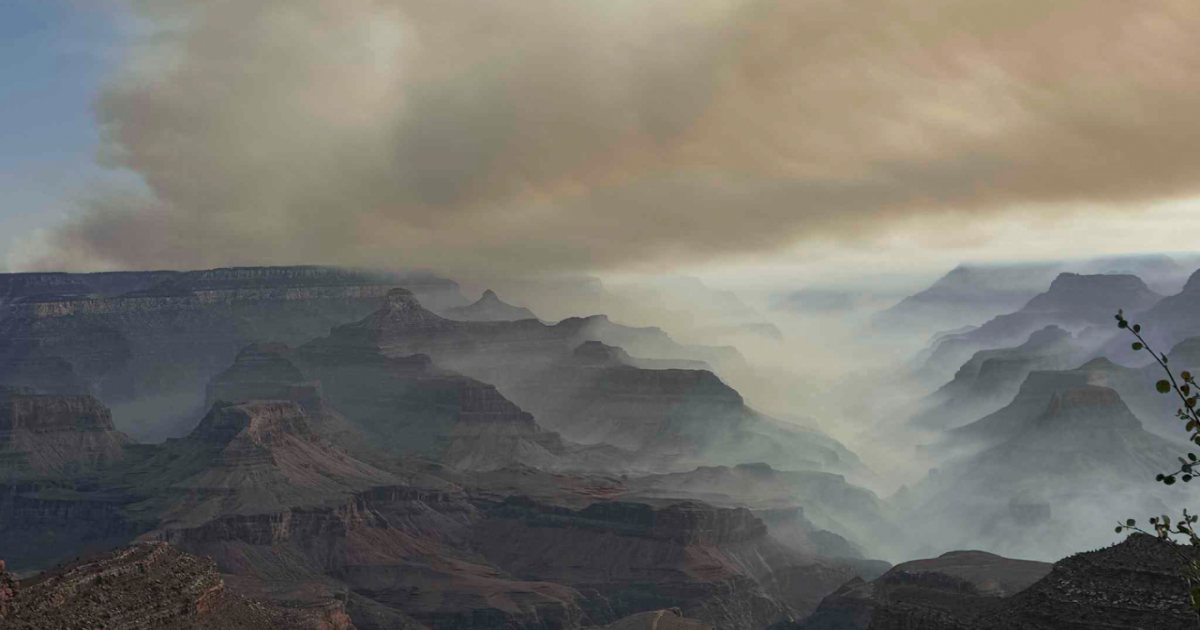Arizona Gov. Katie Hobbs (D) is demanding an investigation into the federal government’s handling of a fire that ravaged multiple sites along the Grand Canyon’s North Rim in recent days.
“An incident of this magnitude demands intense oversight and scrutiny into the federal government’s emergency response,” Hobbs wrote in a Sunday night statement on X.
Sparking particular outrage among Arizonans was the decimation of the historic Grand Canyon Lodge, which opened in 1937 and was the only hotel located within the national park on the North Rim.
The Dragon Bravo Fire, which began on July 4, began exhibiting “extreme and volatile fire behavior” this past Saturday night, resulting in a 500-acre expansion of the blaze, according to the National Park Service (NPS).
At about 10:30 p.m., fire activity intensified as sustained winds of 20 miles per hour and gusts of up to 40 miles per hour fueled the flames, the NPS reported.
Firefighters took action overnight to slow the blaze’s development under what the NPS described as “dangerous and fast-changing conditions” — accompanied by aerial bucket drops of water.
The use of aerial retardant was impossible, the federal agency noted, due to a chlorine gas leak at a nearby water treatment facility that necessitated the evacuation of fire personnel in the area.
“Fire managers have confirmed the loss of the Grand Canyon Lodge and numerous historic cabins in the developed area,” the NPS said in a statement.
Preliminary assessments from the agency indicated that between 50 and 80 structures were lost, including the NPS administrative buildings and visitor cents. No injuries or losses of life have been reported thus far, however, the NPS stated.
By Sunday evening, the fire had grown to about 5,000 acres, as documented by InciWeb, an interagency site that monitors wildfires.
Meanwhile, about 30 miles north, another blaze — the White Sage Fire — had scorched about 40,186 acres and was 0 percent contained as of Sunday night, the U.S. Forest Service reported.
“Hot, dry, and windy conditions continue to challenge firefighting efforts,” the agency stated, noting that readily available and highly flammable vegetation was “creating a volatile environment.”
Back along the North Rim of the Grand Canyon, Arizonans were mourning the loss of the historic lodge, which opened its doors in 1937.
That iteration of the Grand Canyon Lodge grew out of a previous fire event that burned down its predecessor, founded in 1928, according to the NPS.
The original, designed by architect Gilbert Stanley Underwood, served as a symbol of nature preservation and was built for its then-concessionaire, the Union Pacific Railroad.
While a 1932 blaze “engulfed the structure within minutes,” its inhabitants managed to escape unscathed. The 1937 redesign incorporated the same floor plan but had “a more sensible structure” whose sloped roofs could tolerate heavy snows, per the NPS.
“I am incredibly saddened by the destruction of the historic Grand Canyon Lodge,” Hobbs stated on Sunday.
The Arizona governor called upon the federal government to “first take aggressive action to end the wildfire and prevent further damage.”
“But Arizonans deserve answers for how this fire was allowed to decimate the Grand Canyon National Park,” she said.
Although Hobbs acknowledged that the blaze began with a lightning strike, she stressed that the NPS chose to manage the incident “as a controlled burn during the driest, hottest part of the Arizona summer.”
“I am calling on the federal government for a comprehensive and independent investigation into the management of the fire and a report detailing the decisions that led to this devastating outcome,” she added.
